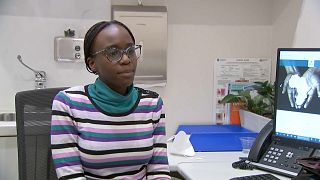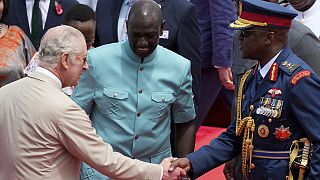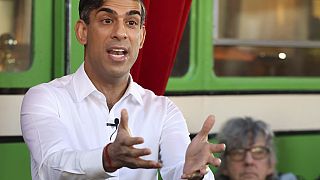Health
At a certain point, you say to yourself, "But what am I doing," Abdelwaheb despairs. For him, "the situation in Tunisia has become a source of anxiety and anguish.
The political quarrels, social tensions and economic difficulties contribute to the "suffocating" climate of the country, underlines the doctor.
"I don't see any hope here anymore, I want to leave to have a better morale", he explains, he who has already had several offers and is preparing his papers for abroad.
Unhappiness
Sign of the malaise of doctors: protests broke out in December 2020, after the accidental death of a 27-year-old intern surgeon due to a malfunctioning elevator in a hospital in a disadvantaged region of the northwest of the country.
A study published in 2020 by a young doctoral student in medicine points out that the brain drain affects all types of doctors and paramedics, exacerbating the shortages "especially in the least developed regions."
The countries hiring staff with such skills "take advantage of free human capital very qualified," laments Ahlem Belhaj, secretary general of the union of doctors.
"This flow concerns us," acknowledges the Director General of Health, Fayçal Ben Salah, estimating the total cost of training a doctor at over 150,000 dinars (46,000 euros).
The emigration of brains can be considered as an "export of services, but it must be controlled so that the state and the people find themselves," he said, calling to organize these migrations by conventions between states.
According to the Minister of Health, Faouzi Mehdi, the health sector currently needs 3,000 medical and paramedical staff to cope with the pandemic coronavirus.
But, already a warning shot was given by the Secretary General of the Tunisian General Union of Labor (Ugtt), Noureddine Taboubi, who said that 800 doctors left the country in 2018, that 900 other doctors did the same in 2019, and that 2,700 would set sail in 2022, further increasing the deficit of a sector already suffering from the exodus of 1,500 doctors.
This emigration aggravates the crisis of the public health sector given the lack of recruitment of doctors during the years 2017 and 2018.
Indeed, the precarious socio-economic situation, the fall of the dinar and the deterioration of the investment climate, as well as insecurity, remain the main factors that promote the brain drain in Tunisia.
For doctors, to the dilapidated infrastructure, the shortage of drugs and the cruel lack of medical equipment, as well as the working conditions often execrable, are also added the financial deficit of public health institutions and the deterioration of the situation of social funds.
The deterioration of the situation of public health, including its marginalization to the benefit of the private sector, has caused thousands of doctors to leave the country every year. As an example, 45% of young doctors among 400 registered in 2017 at the Council of the Order of Physicians in Tunisia have left the country. A phenomenon that extends to medical students abroad of which 55% refuse to return to the country.
It is worth recalling in this context, the words of the former Minister of Health, Imed Hammami, who expressed concern about the brain drain that plagues the sector. He has, in this sense, admitted that the state is unable to retain doctors, including seniors, who represent 16% of doctors in public health. As for the juniors, he said that some measures could be applied, which would require young doctors to work at least three years in their home country before expatriating.
But despite these alarming figures, the shortage could be avoided by a simple rehabilitation of the sector, the improvement of the health system and the increase of the capacity of medical schools in our country.
AFP











01:13
WHO approves new cholera vaccine that could help fight surge in cases
01:30
UN reports widening global inequality in sexual and reproductive health and rights
01:10
Israeli troops leave Gaza Al-Shifa hospital laying in ruins
01:30
Gaza: visiting doctors 'stunned' about situation of wounded palestinian children
02:23
Muslims in Sierra Leone navigate heat during Ramadan
Go to video
Kenyan doctors stop providing emergency services